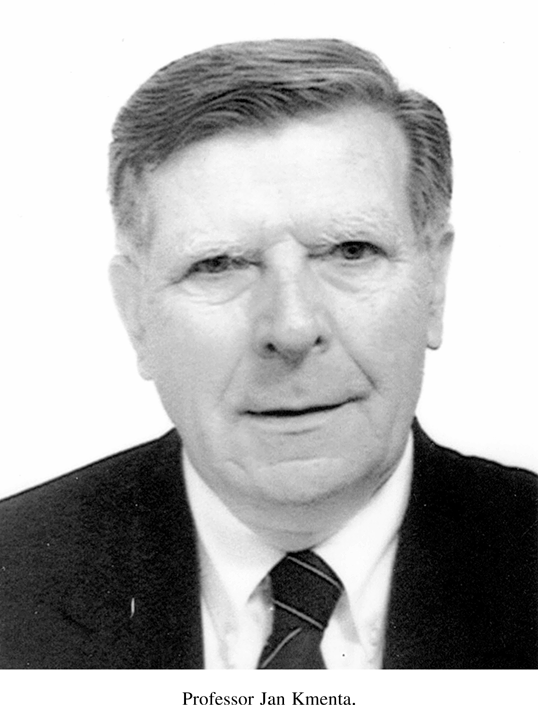Article contents
THE ET INTERVIEW: PROFESSOR JAN KMENTA
Published online by Cambridge University Press: 22 April 2005
Abstract

Jan Kmenta is the author of the internationally respected text The Elements of Econometrics [1] and co-editor of several books related to econometric model building. His published research over 40 years relates to many facets of econometric theory and practice, including the estimation of production functions, the evaluation of structural econometric models, and estimation in the face of missing data. This work has appeared in the leading journals of the profession. A 1966 paper [11] is of historical interest for being the second econometric model constructed of the Australian economy. In his work, through both constructive contributions and methodological critique, he has always sought to highlight and advance the evidently close connection between economics and econometrics.
Kmenta was born on January 3, 1928, in Prague, the Czech Republic. He was educated at the Jirasek State Gymnasium in Prague (1939–47) and the Czech University of Technology in Prague (1947–49). At the University of Sydney (1952–55), Australia, he graduated with a Bachelor of Economics degree (First Class Honors). He obtained a Master of Arts degree (1959) and a Doctor of Philosophy degree (1964) from Stanford University with a doctoral dissertation entitled “Australian Postwar Immigration: An Econometric Study.” After teaching stints in Australia, Stanford, and Wisconsin, he taught at Michigan State from 1965 to 1973 and at the University of Michigan from 1973 to 1993. He is currently Professor Emeritus of Economics and Statistics, University of Michigan, and Visiting Professor, CERGE-EI, Charles University, Prague.
His various academic awards and prizes include the Alexander von Humboldt Foundation Award for Senior U.S. Scientists, the Michigan Economic Society Best Professor Award, the Royal Economic Society Lecturer at the University of Leicester, and the Karel Englis Medal of the Academy of Sciences of the Czech Republic. He was awarded an honorary doctorate from the University of Saarland, Germany, and served as associate editor, Journal of the American Statistical Association (1973–1979 and 1985–1992), associate editor, Review of Economics and Statistics (1975–1992), and associate editor, Metrika (1981–1985). Kmenta was listed as 40th among all economists ranked by the total number of citations (Medoff 1989).
This is an edited transcript of two tape-recorded interviews conducted with Professor Kmenta in Sydney on March 12, 2004, as he visited the University of New South Wales to present the seminar Econometrics: A Failed Science? I am indebted to one of Kmenta's former students, Eric Sowey, for suggesting this project and for his enthusiasm and support throughout.
- Type
- ET INTERVIEW
- Information
- Copyright
- © 2005 Cambridge University Press
References
REFERENCES
- 4
- Cited by




